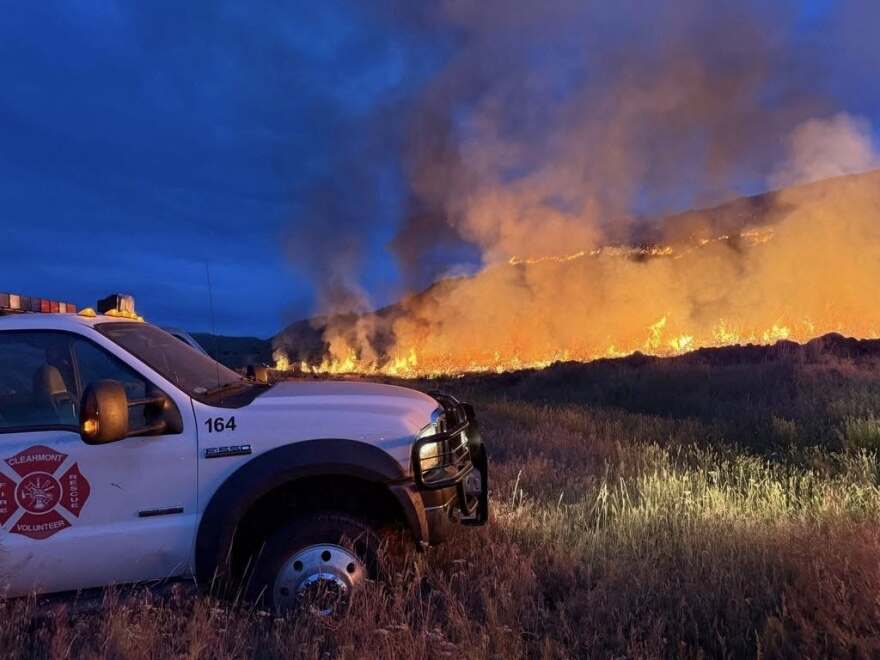A number of new wildfires started across the state on July 1, mostly due to lightning strikes. Grasses are dry and primed to spread fire quickly. Fire managers are asking for help to limit new starts by being careful ahead of the Fourth of July weekend and keeping water handy.
Northwest of Gillette, the Powder River Fire is now estimated at about 870 acres with about half of its perimeter contained, according to the wildfire tracking app Watch Duty. Clearmont Fire District assisted Johnson County to keep growth minimal overnight, despite strong winds. Bureau of Land Management and U.S. Forest Service helicopters and engines also assisted.
In Hot Springs County, several local fire departments are working to contain the Coyote Run Fire southwest of Thermopolis. It’s about 170 acres. Meanwhile, the Hall Fire north of town is contained at just over 1,000 acres.
Expected afternoon thunderstorms and gusty winds this week could lead to new starts.
The governor’s office is asking for help preventing human-caused fires following last summer’s hectic season. The 2024 fire season was Wyoming’s second-worst on record, with more than 810,000 acres burned around the state. Nationwide, 90% of wildfires are caused by humans.
“No one wants to see a repeat of last summer, but we cannot ignore the fact that we are already seeing an uptick in fire activity across the state,” Gov. Mark Gordon said in a statement. “Wyoming’s fuels are drying out and fire risk has increased. As you celebrate this Fourth of July weekend, please do so responsibly. Carelessness with fireworks, with campfires and with open flames can quickly turn disastrous.”
Some tips to keep in mind:
- Drown your campfire, and never leave a fire unattended. Extinguish any abandoned campfires you may come across.
- Use fireworks only in approved areas.
- Don’t drive or park on dry grass.
- Address loose chains when pulling a trailer to ensure that they aren’t dragging and causing sparks.
- Report any fire starts to local authorities.
Check your county’s emergency management website to sign up for evacuation and other emergency alerts delivered to your cell phone.








